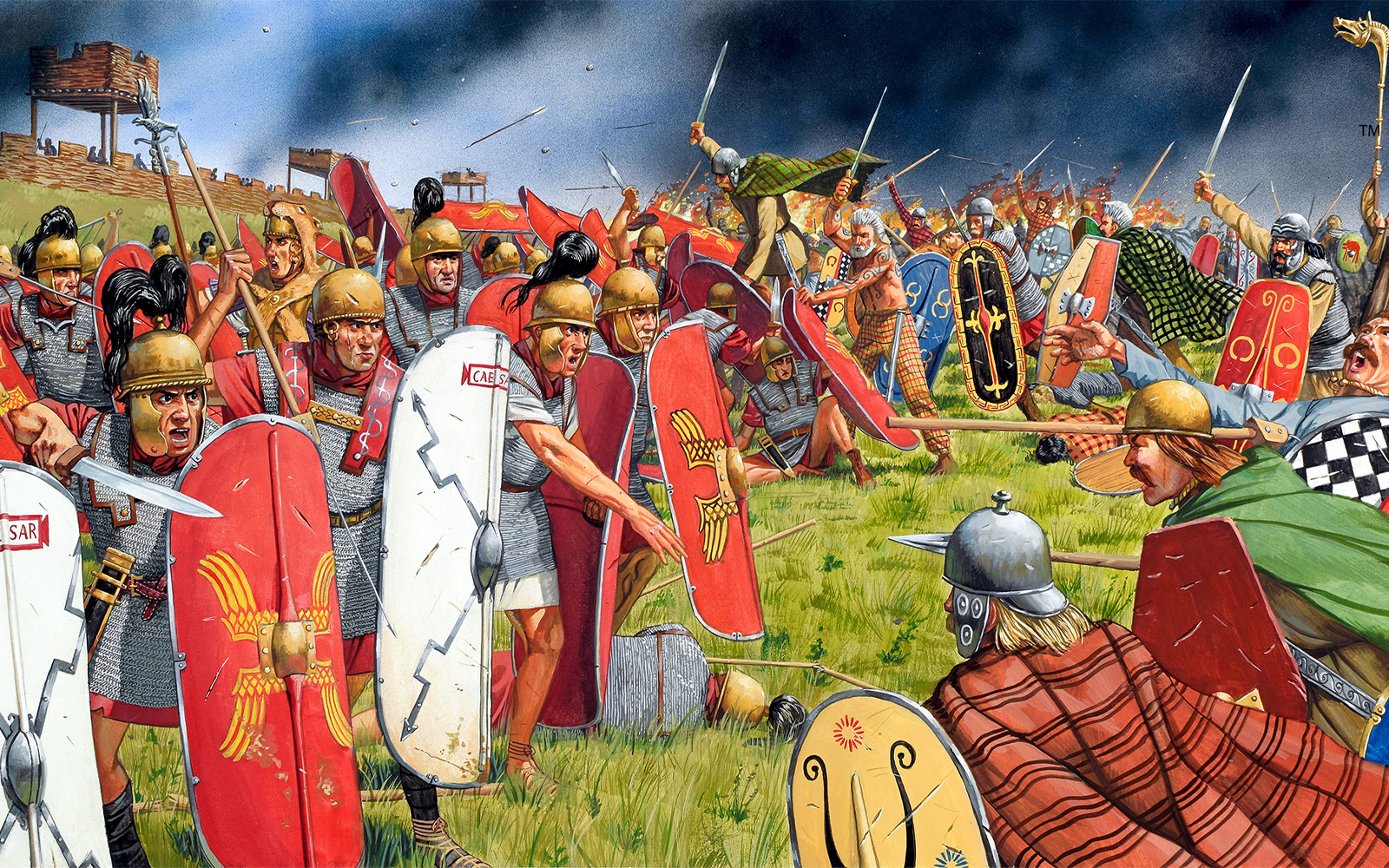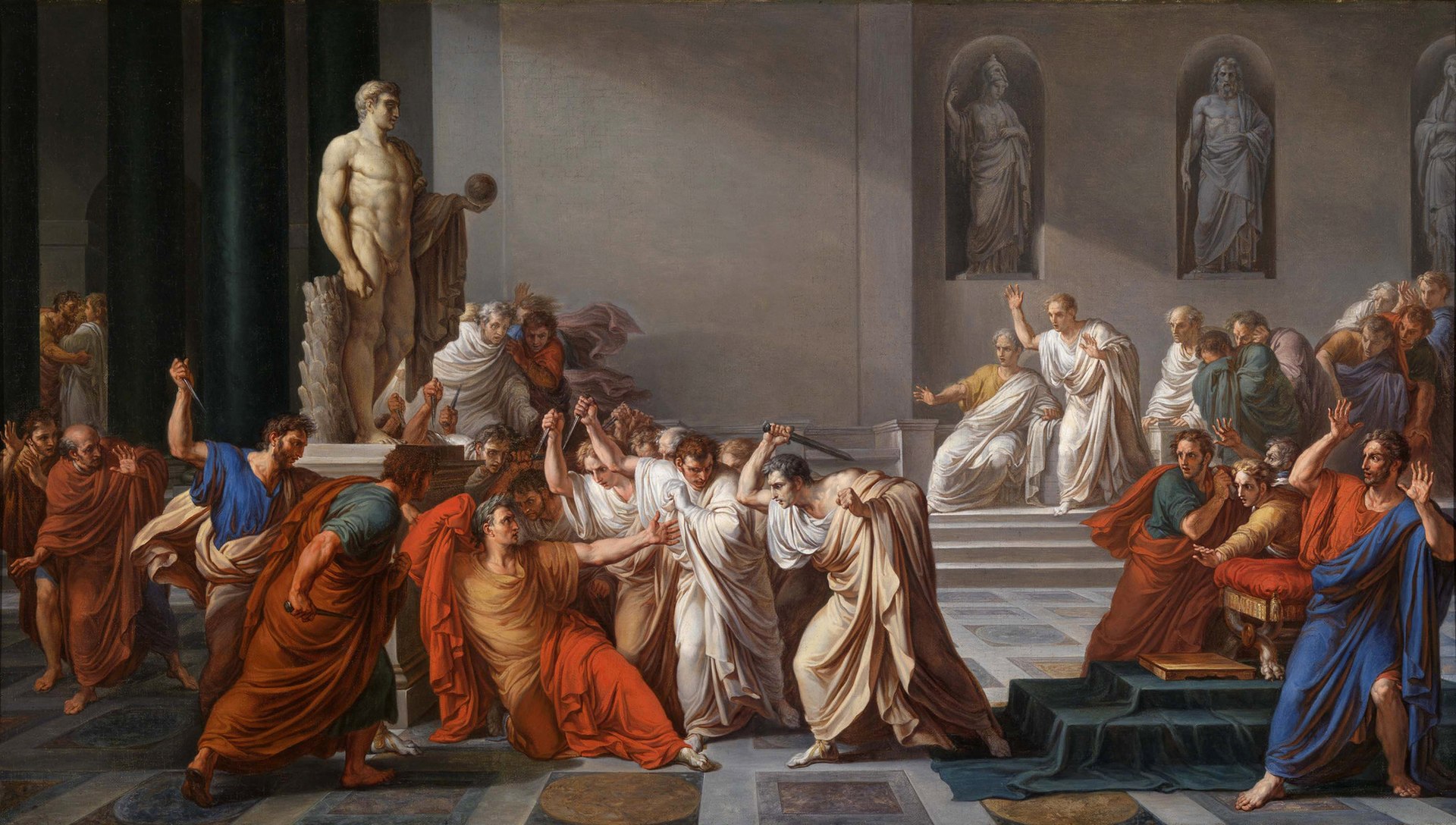CONQUEROR OF GALIA: JULIUS CAESAR
The Gallic War was the military expeditions of Julius Caesar, the famous general of the Roman Republic, between 58 and 50 BC, to annex Gaul (now France, Belgium, Luxembourg, Switzerland, northern Italy and western Germany) to Roman territory. During these campaigns, Caesar defeated many Gallic tribes, raided British and Germanic lands, increased the Roman army and political power, and entered into civil war with Pompey and the Senate, who opposed him. Caesar narrated the Gallic War in the third person in his work (Latin: Commentarii de Bello Gallico; Notes on the Gallic War)
. Reasons for Caesar's Gallic campaigns include:
- Political crisis of the Roman Republic: Caesar had established a political alliance called the First Triumvirate with Pompey and Crassus in 60 BC. This alliance enabled Caesar to be elected consul in 59 BC. However, during Caesar's consulship, he encountered opposition in the Senate, and especially Republican senators such as Cato and Cicero tried to break Caesar's power. Caesar wanted to escape political pressure by receiving the governorship and command of Gaul from the Senate. In addition, he aimed to increase both his own prestige and the support of Pompey and Crassus by gaining military success and war spoils through the Gallic campaigns.
- Strategic importance of Gaul: Gaul was both a threat and a source of opportunity for the Roman Republic. Gaul formed Rome's northern border, providing Rome's connection with Spain, Britain and Germanic lands. Gaul was also a wealthy region; It was developed in terms of agriculture, mining, trade and handicrafts. The conquest of Gaul would bring both security and prosperity to Rome.
- Caesar's personal ambition: Caesar wanted to become Rome's greatest general and politician. Therefore, he wanted to demonstrate both his military genius and leadership ability with his Gallic campaigns. Caesar wanted to create a legend that would mark both Roman history and world history with his Gallic campaigns. 
The results and effects of Caesar's Gallic campaigns include:
- Expansion of Rome: Caesar expanded Rome's territory by approximately 1 million km^2^ with his Gallic campaigns. Besides Gaul, Rome also took control of Britain and parts of Germanic lands. In this way, Rome dominated a large part of Europe. Rome also benefited from the riches of Gaul; Agriculture, mining, trade and handicrafts developed. Rome became both a powerful and rich empire with its Gallic campaigns.
- Romanization of Gaul: Caesar changed the cultural, religious, political and social structure of Gaul with his Gallic campaigns. Caesar spread Roman laws, language, religion, art, architecture, and way of life throughout Gaul to make Gaul part of Rome. Caesar also granted Roman citizenship to Gaul; Gauls served in the Roman army, administration, and Senate. Caesar connected Gaul to Rome with his Gallic campaigns; Gaul became one of Rome's most loyal and important provinces.
- Rome's civil war: Caesar increased his political power in Rome with his Gallic campaigns. By gaining both military successes and the spoils of war, Caesar increased both his own prestige and the support of Pompey and Crassus. However, Caesar's power aroused fear and jealousy in the Senate. Caesar's rivals, especially Pompey and Cato, incited the Senate to break Caesar's power. The Senate demanded that Caesar terminate his governorship and command of Gaul, return to Rome, and abandon his army. Caesar refused this request and crossed the Rubicon River in 49 BC and advanced towards Rome. This marked the beginning of the civil war that brought the end of the Roman Republic and paved the way for the establishment of the Roman Empire. 
The Gallic War is an important event in both Roman history and world history. Caesar changed the fate of both Rome and himself with the Gallic War. Caesar went down in history as both a military genius and a leader with the Gallic War. Caesar created both a legend and a tragedy with the Gallic War. The Gallic War began with Caesar's words and ended with Caesar's death: "Alea iacta est" (The dice is cast) and "Et tu, Brute?" (Are you too Brutus?). The Battle of Gallia is the greatest of Julius Caesar's most important achievements that brought him to power. Thanks to this war, he gained both economic, military and charismatic leadership powers. The biggest mistake he made was the transition from republic to empire and he was murdered for this reason. But this action did not change much and Rome transitioned into an empire.
The Battle of Gallia is the greatest of Julius Caesar's most important achievements that brought him to power. Thanks to this war, he gained both economic, military and charismatic leadership powers. The biggest mistake he made was the transition from republic to empire and he was murdered for this reason. But this action did not change much and Rome transitioned into an empire.


































